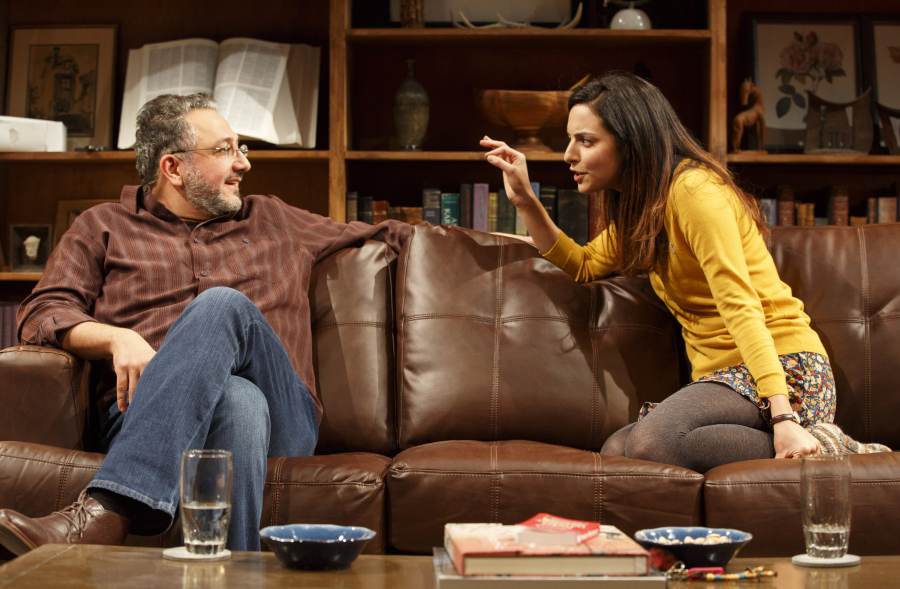

The key to unlocking Zayd Dohrn’s The Profane lies in the seemingly innocuous double casting of Francis Benhamou, the vibrant actor who plays Aisa and Dania, the former is the eldest daughter of Raif (Ali Reza Farahnakian) a first-generation Middle Eastern writer who fled his country to see his vision of freedom fulfilled in America. The latter belongs to a more traditional Middle Eastern family, who despite living in America follow the teachings of the Quran and impose restrictions on women and men. Beyond being played by the same actor, Aisa and Dania are essentially two sides of the same coin, two women whose families may come from the same part of the world, but whose upbringings could’ve easily taken place on different planets. Benhamou infuses both characters with longing for the uncertain, even as she carries the burden of delivering the play’s “central message” on her shoulders.
What Dohrn does in The Profane is attempt to dissect the nature of dissent, not only how are people who seem so similar in fact so different, but also why? Why is the intellectual Raif so different from his soon-to-be in-law Peter (Ramsey Faragallah) who has no interest in higher education and displays a golden Quran on the very same spot where Raif would put a print by Picasso. Why did Peter choose to pursue money and business rather than more noble causes? Who gets to decide what makes art more noble than business in the first place? How did these two men come to worship such seemingly opposite gods? Clearly Dohrn doesn’t have the answers to most of the questions he poses, but there are inklings of what could be the beginning of mutual acceptance as we watch the characters stop the incessant suspicions and questioning, and actually witness the humanity in each other.
Kip Fagan’s energetic direction brings the play to life without seeming overly intellectual, choosing instead to go down the darkly comedic, almost farcical route. We see Raif become the scary in-law to the wide-eyed Sam (Babak Tafti) who is facing a crisis of faith of his own, completely oblivious to Raif’s fears that he’s extremely religious. Scene after scene we’re meant to go “well, they’re not that different from each other”, but the play does this without becoming too didactic or patronizing. At times it feels as if Dohrn himself was making such discoveries and felt compelled to leave them in the play because they were so revelatory. Where The Profane truly excels is when it catches its characters, and us, completely off guard. In a scene where Raif exclaims “it’s easy to be skeptical when you’re not miserable” Dohrn makes the whole world come to a pause, perhaps if we were always able to find such moments in life our existences would seem more divine.